US lust for war mostly based on profit margins
A good deal of the earnings accrued from US wars goes straight into election campaigns, which in other countries would be considered bribery, but in the United States is relabeled as campaign donations.
The US is well known for inciting war, invading various countries with facile justifications, usually in the name of Democracy and human rights, framing itself as liberators rather that resource grabbing invaders.
Washington not only spends more than everybody else on its own military, but it exports weapons to the rest of the world beyond what anybody else does. In actuality the arms 96% of the nations that it itself calls the most oppressive, most brutal dictatorships and governments on the planet.
One would be hard put to find a war without US made weapons on both sides.
Not only is this profitable for US companies, but it also means that the United States can have people on the ground in every country, fixing the weapons that always break, updating the weapons that always change.
In recent decades, at least five or six times, hawks in Washington were screaming for a war on Iran,however, in 2007, and at other junctures in time. it was largely due public protest, and the reluctance of Congress members and presidents to start another war as unpopular and scandalous as the war on Iraq, which prevented it from escalating into another quagmire for the powers that be.
if you ask US Congress members what motivates them to partake in conflicts, they will say it is the absolute terror that China might become a bigger, more important, grander, "more number one nation", than the United States.
David Swanson, executive director of the World Beyond War movement, joins us on episode 49 of PRESSCAST, a podcast by Press TV, and walks us through a brief history of America's anti-war movement, sharing with us his insight of the insatiable US thirst for war.
Mr. David Swanson, we would like thank you for joining us and welcome you to the show.
Thank you for having me. It is good to be here.
How did you become an activist?
Well, I couldn't hold down a job that wasn't an activist job. When I had jobs in other fields that weren't aimed at making the world a better place, I wasn't happy with them. And when I had journalism jobs that involved editors who served big corporations that didn't share my interests, I couldn't keep those jobs.
So I found a job in activism related to poverty and racism and civil rights. Eventually I found my way into jobs working for peace and against war.
It wasn't something I aspired to as a child; it wasn't something I knew about in my 20s.
And it isn't advertised, there aren't billboards all over the United States and television commercials in every program, recruiting people to peace activism, the way that there are recruiting people to war.
There is no training for peace activism, unlike war, for which there is plenty
Was there a particular point when you became interested in becoming a peace activist?
Well, I never ever supported war, I didn't have a conversion. I'm not a veteran who turned against it. I grew up with war everywhere, because I grew up near Washington, DC.
And so I saw the military everywhere. And it was considered very normal. And yet occasionally, it disturbed me deeply.
I remember taking a cousin, who was visiting from distant part of the United States, to see the Naval Academy. And it was such a beautiful, sunny day with sailboats, and people and dogs and fun. And they were training 1000s of people how to commit mass murder, as if it were perfectly normal. And my cousin wanted to be part of it.
And I became physically ill, you know, so there are. So there are occasions like that in my childhood, but I had no idea that you could work that you could have a job working against war, working for peace, I just had no idea.
And so when I discovered that I could work for online activist organizations that generated emails and petitions, and I found that I could work on the issue of ending war, ending the war on Iraq in particular, because that was the big war, that it was possible to maybe end at that point in time. Then I did it, you know, but it wasn't something I sought out because I didn't know you could.
Which war in particular sparked your interest? Did you witness the Vietnam War? Which wars were you aware of as a child?
Well, I was born in December of 1969. So the war on Vietnam ended before I could walk very well, I think. I remember very vaguely Richard Nixon being driven out of town.
And I certainly grew up with the idea that peace was good, and war was bad. I didn't grow up in a military family or with celebrations of war.
And when the first Gulf War happened, and I was not much of an activist at all, I was a student. I went, I lived in New York, and I went and protested at the United Nations for a couple of days.
Because that just seemed like the normal decent thing to do. They're going to start a war; you go protest in front of the United Nations. But I had no idea I could make a career out of it at that point.
And so when the war on Iraq was going on, I very much wanted to end it, in fact, I very much wanted to impeach and remove and prosecute and imprison George W. Bush and Richard B. Cheney and others at that point. And I had protested in New York and Washington and all over, you know, for a number of years from the moment that it looked like they wanted to attack Afghanistan, I had been going to the protests.
But it was when I, when I finally got a job in 2005 that could be directed toward impeaching Bush and ending the wars that I worked on that and I've worked on that ever since.
You said that you've been in a lot of anti war protests; nevertheless, all those wars eventually took place. Did any of those protests, work? How did they work? How do they work? I mean, we see all these protests, and still we see wars happening. Isn’t that rather futile?
Yes, well, it's certainly possible to denounce the failures of countless protests. It's also all too easy to overlook the successes.
I think it's important that the massive unprecedented, greatest ever mass demonstrations of February 15th 2003 and earlier ones around the world opposing a war on Iraq, brought many nations' governments to refuse the US demand and oppose that war, brought the United Nations to refuse to legalize that war.
If you believe the United Nations can legalize a war, it refused to.
It brought many a whistleblower forward to expose facts about the dirty dealings leading up to that war, and helped to make that war illegal and shameful, so that we had an easier time preventing escalations, ultimately scaling it back and preventing other wars, so that when President Obama wanted to bomb just about every inch of Syria, and had told the leading senators and Congress members that it was about to happen, and then reversed that decision, and didn't do it.
He didn't become an advocate for peace. He didn't pull the CIA and mercenaries out of Syria, he didn't start promoting nonviolent Rule of Law and Diplomacy and aid. But he did refuse to bomb every inch of Syria.
When the US Congress made the agreement when this when the US Congress allowed President Obama to make the agreement with Iran, you know, which I always saw, not as preventing Iran from developing weapons, but preventing the US Congress from starting a war on Iran.
This was because of incredible public demand in favor of that agreement, flawed as it may have been. And there have been, just in recent decades, at least five or six moments, when people in Washington were screaming for a war on Iran, to take one nation as an example, in 2007, and at other points, where it was largely public protest, and the reluctance of Congress members and presidents to start another war as unpopular and scandalous as the war on Iraq.
That allowed us to hold off the war on Iran so that now every time they say we urgently need a war on Iran right this minute or we're all going to die, we can say 'You said that six times before, and we stopped you six times, and nothing went wrong, nothing happened'. And so it matters that those protests in February of 2003, inspired people to mobilize against dictators in places like Egypt, people who were ashamed to see the infidels in Europe marching against the war on Iraq, when they weren't marching against it, inspired people around the world on a variety of issues that they saw as connected with opposing US imperialism.
So, you know, we can't, we can't predict we're going to win, we can guarantee we're not going to win entirely everything we want immediately. But if we don't do what we can do, we can guarantee we're going to lose.
Apart from the obvious economic benefits of lucrative military contracts, what other factors do you think may be behind the US lust for war? What is to be gained by this? Could you enlighten us as to why the American government loves wars so much?
I think a big factor is profit, the money made from the weapons and other war companies, and how much of it goes straight back into election campaigns in what in other countries is called bribery, and in the United States is called campaign donations.
But I think a lot of it has to do with controlling the world and controlling other countries. The United States not only spends more than everybody else on its own military, but it exports weapons to the rest of the world beyond what anybody else does, in fact, arms 96% of the nations that it itself calls the most oppressive, most brutal dictatorships and governments on Earth, arms them. So it's hard to find a war without US made weapons on both sides.
And this is also profitable for US companies. But it also means that the United States can have people on the ground in every country, fixing the weapons that always break, updating the weapons that always change.
So you know, when Biden pretends to be ending the war on Yemen, there's never any notion of all the weapons companies and troops and personnel on the ground in Saudi Arabia, tuning up and taking care of these, you know, lousy weapons that barely work. Pulling them out isn't even under consideration. Right.
And if you, if you ask US Congress members themselves, don't ask me, if you ask you, US Congress members listen to what they say about what motivates them. It is the absolute terror that China might become a bigger, more important, grander, more number one nation, than the United States. And it's hard to pin down exactly what that means.
You know, I certainly think a nation with a lot more people in it should have a lot more money. I mean, who would possibly be against that? But this is the big fear, that China might be more powerful, more prestigious, and more important, it might be China's century.
So this is what Biden wants to do. If you can make any sense out of it, you let me know, he wants to win the 21st century by defeating China.
Now, does that mean bombing China? Does that mean a nuclear war that kills everyone on earth? What does that mean? We don't know. But we know that the United States is spending well over $2,000 every year for every man, woman and child in the United States on the military.
Well, whereas China is spending much less than $200 for every Chinese man, woman and child on its military. And of course, China is benefiting from that fact.
So how many active wars are the Americans actually involved in right now?
Well, it depends (on) what counts as a war. It's not as if they tell us these things. We have to go and find out. We have to get reports from the receiving end of the missiles.
But certainly there are, if you count wars as places with over 1000 deaths a year, if you go to worldbeyondwar.org, we just on Monday posted a set of maps mapping what war looks like across the world this year.
And the places with wars, killing over 1000 people a year in the past year, include much of, of what we call the middle east of, of Western Asia include much of Northern and, and eastern Africa, plus Mexico.
These you know, these are the places but if you want to look at where US Special Forces, and drones and mercenaries are doing anything at all, then it's a much bigger list.
Could you refresh us on how the United States got involved in the 2003 war in Iraq and how the situation stands at present?
Well, you can of course, go back to the first Gulf War and to the endless bombings that followed and consider that that war never ended. But if you look just at the phase that began in 2003, you have to look at the lead up during the Clinton years, the policy arrived at by the White House and Congress dedicated to overthrowing the government of Iraq, you have to go back to the policy demands of the Israeli government, and of personnel within the US government who had worked for the Israeli government, and to the election of George W. Bush, who was openly dedicated to launching a war on Iraq.
And when the crimes, I don't, I wouldn't call them a war, but rather crimes that ought to have been immediately prosecuted in court, happened on the September 11th of 2001. You immediately had the demand within the White House to attack Iraq. And you had some individuals pushing back and you had key allies in Tony Blair in the United Kingdom and others pushing back.
And you had the decision arrived at to attack Afghanistan first, and then Iraq. And this was the agreement with Tony Blair that he would support attacking Iraq, if Afghanistan were first. And so you then had this lengthy campaign of advertisements and public speeches and false claims leading up to the war on Iraq, that people think of to this day, people think of it as really being unique in terms of being dishonest about the motivations for a war.
I, of course, wrote a book called "War is a Lie" and tried to find a war that wasn't dishonestly marketed, and I couldn't do it, but not anywhere, not in any country, ever.
They're all based on lies. But this one was lies told by people who were not very good at lying. They weren't very good at much, and they certainly were not very good at lying, and they made claims that were very easily and quickly disproved.
And so you had all that opposition built up against the war before it started, that we denounced as having failed and so forth. But then when the lies were immediately disproved, then you were able to build on that and build huge opposition to that war of a sort that you haven't seen in the United States since 50 years ago.
And then you had elections in 2006 in the United States that changed the party majority in both houses of Congress explicitly in order to end the war. People overwhelmingly told the pollsters at the voting places, we are giving the democrats the House and the Senate to end the war on Iraq.
And the democrats immediately came in and escalated the war on Iraq, which ought to have made people angry, ought to have made people principled and independent and, and no longer servants to the democratic party because that didn't work. Instead, it made people go to sleep and turn off and go home. And so that was a downturn in terms of peace activism.
Donald Trump regardless of all the crazy decisions he made didn't start any wars, did he?
He did not start a major new US war. And we haven't seen that out of any US presidents in years and years. And if we can get that out of Biden, and whoever's next, if we last beyond Biden, that will be wonderful.
You have to admit, at the same time, that he dramatically escalated and continued numerous wars that he inherited from Barack Obama, including wars that people to this day believe Barack Obama ended, including the war on Afghanistan that goes on, including all of the drone wars, Obama had dramatically escalated the drone wars, Trump did as well beyond Obama levels, so that now they talk about just getting back to Obama levels of murdering people with missiles from drones as the gold standard of, of legal behavior.
So you know, you can't take a guy who threatens nuclear war, who bashes foreign governments, who dramatically increases military spending, who builds new bases around the world, who invests in new nuclear weapons, and really call him a peace activist. But the fact that he didn't start a big new war is terrific.
You talked about Afghanistan and the war which is still ongoing. What is the reality on the ground in Afghanistan and when can we expect all the foreign troops to finally leave the country?
Well, you know, you have about 35 countries with troops in Afghanistan, some of them have got hundreds, some of them have got six or eight, and it’s largely to make it look less criminal, more acceptable and respectable.
And some of them believe things that Joe Biden says, which makes it fairly likely that a lot of them will pull out their troops by September of this year. It's also possible that the United States will continue what it's now doing and pull out its troops by September of this year.
But it's not going to pull out the CIA; it's not going to pull out the Special Forces. And it's openly committed to continuing to blow people up with missiles in Afghanistan, just launching them from outside of Afghanistan. And so this is not what we need. This is not what will bring peace to Afghanistan.
It certainly, you know, to the extent that it reduces the killing by the US military, it's a step in the right direction, but we don't even know that it will do that.
This is a war like all of these wars, that has become increasingly an air war. And if the air war is going to continue, it's just going to continue from outside the borders, then we don't really know whether the violence from the United States much less from everybody else is going to go down or not.
So there is still work to be done in terms of demanding that the United States and NATO get out of Afghanistan.
Yuval Noah Harari, historian and author, in his book, Sapiens, has said that we are experiencing fewer and fewer wars compared to the past two centuries.
It would seem we are experiencing fewer wars, in part, due to the activities undertaken by the likes of yourself and other peace activists.
Do you think there really is a trend suggesting that the world is going to experience fewer wars in future?
I refer to this set of beliefs as “Pinkerism” in honor of another writer named Steven Pinker.
There are a number of people employed at universities in the United States who will tell you that war is almost gone, it has virtually disappeared.
And there is, in fact, evidence that all kinds of violence has decreased over the millennia and over the centuries.
But when it comes to these claims, that war is almost gone. I wish it were true. I also wish I could take credit for it.
But I'm not convinced.
They don't use respectable data, they re-categorize various wars as civil wars, and therefore they don't count.
Wars launched by the United States don't count at all, because the United States doesn't wage wars, war is a backward, barbaric, activity participated in by countries where people have different skin colors and religions!
So I'm not 100% convinced that war is disappearing. I am dedicated to making that be true. And I think unless we make it be true, we will all be disappearing. So it's not really an option.
Iran puts ‘Jam‑e Jam 1’ into orbit in milestone for national broadcasting
‘Colonial eradication of Palestine’: Iran condemns Israel’s West Bank annexation push
Thousands block Melbourne as Israeli president ends contentious Australia visit
Nearly 800 Lufthansa flights cancelled as pilots, cabin crew strike
Pezeshkian: US, Israel exploit Iran’s challenges without genuine concern
VIDEO | Press TV's news headlines
VIDEO | Chaos by design
Leader hails Iranians for disappointing enemies with multimillion rallies


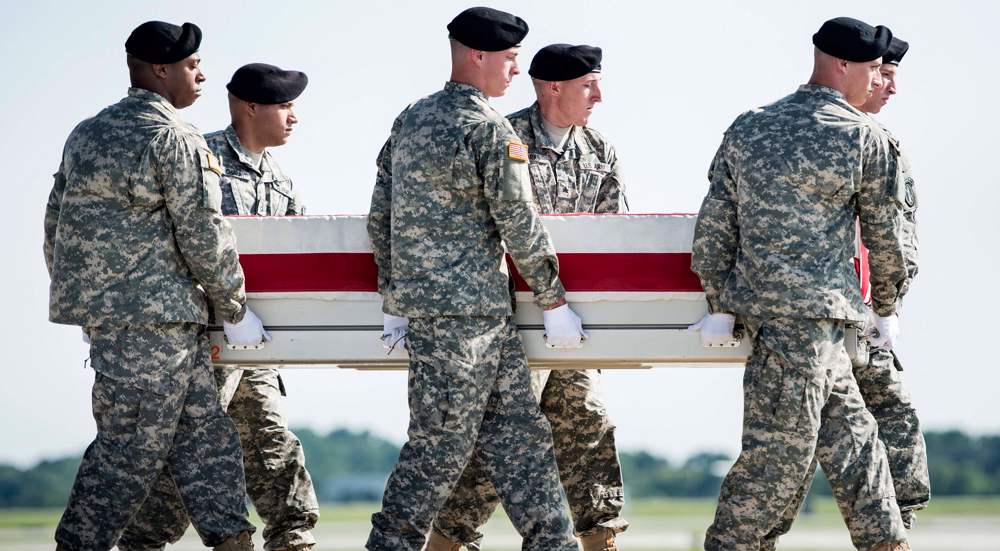






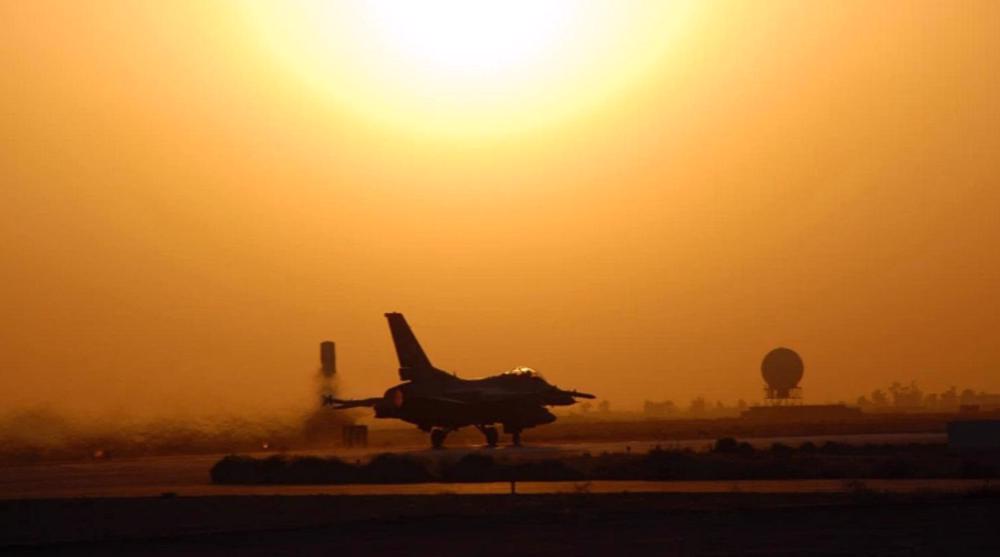
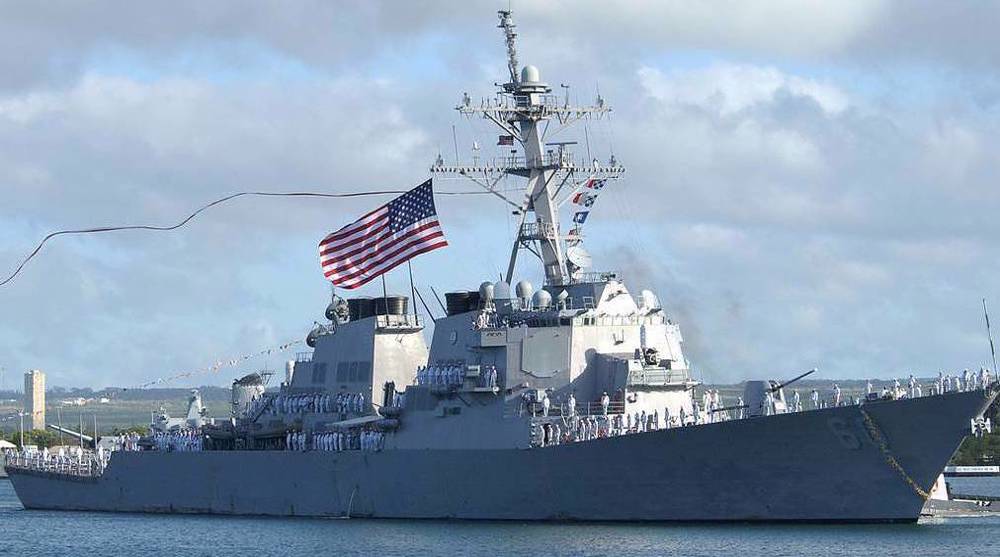
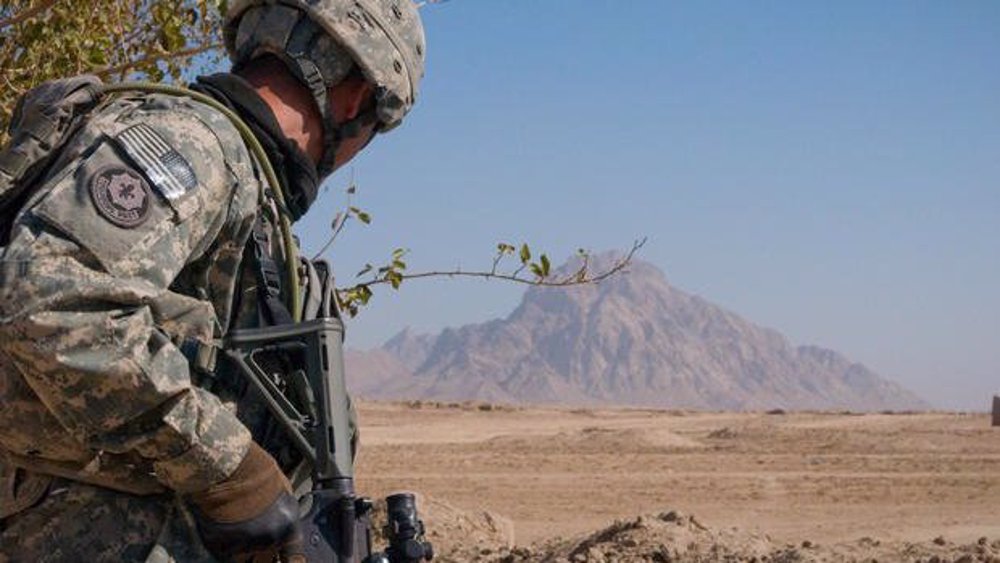
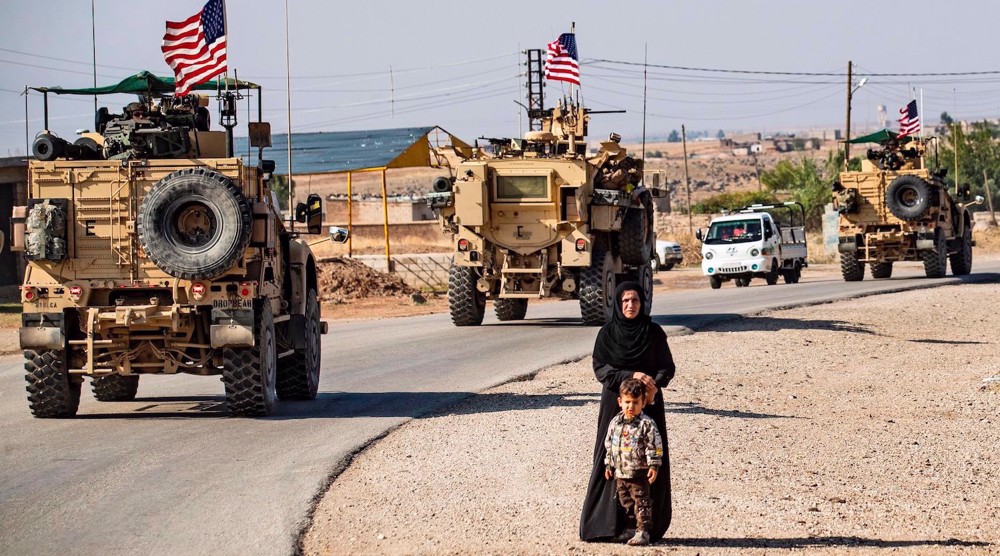
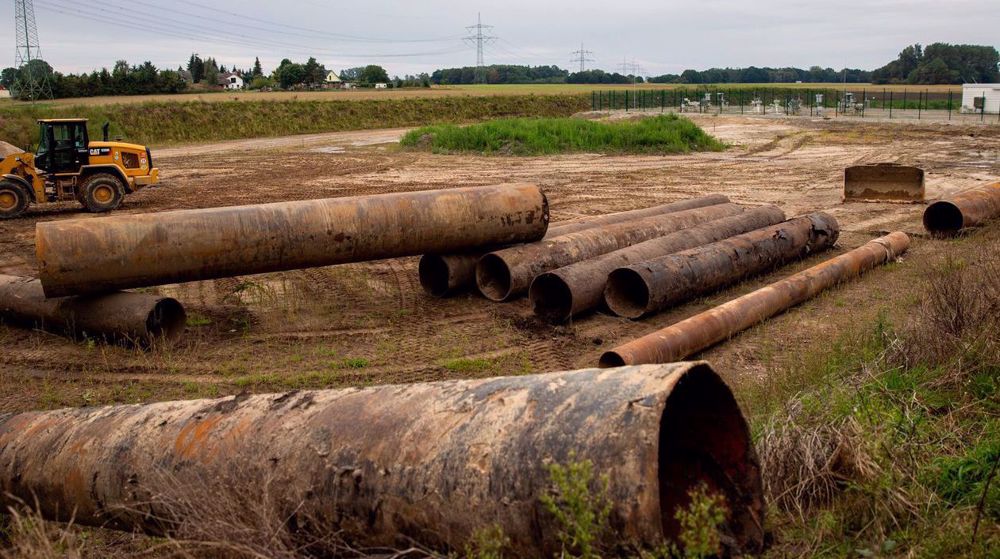

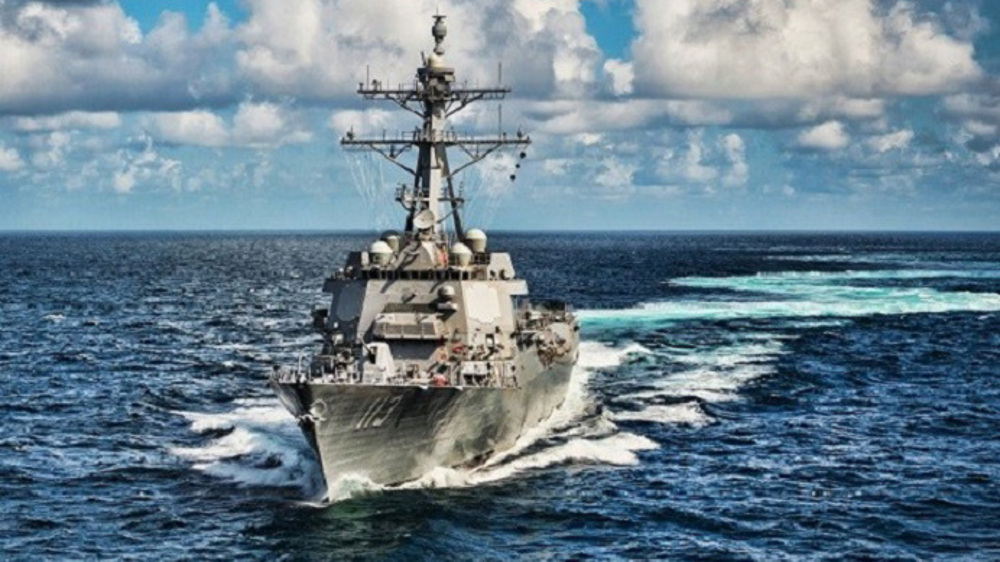

 This makes it easy to access the Press TV website
This makes it easy to access the Press TV website